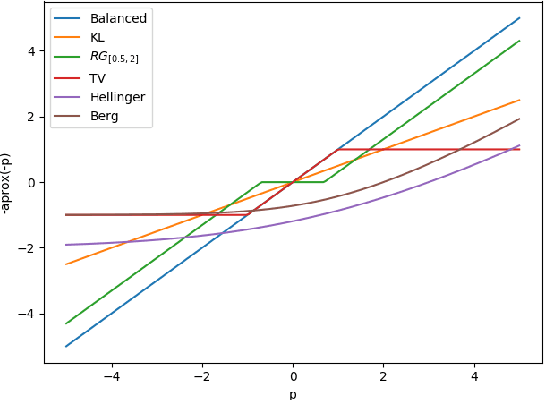Sinkhorn Divergences for Unbalanced Optimal Transport
Paper and Code
Oct 28, 2019
This paper extends the formulation of Sinkhorn divergences to the unbalanced setting of arbitrary positive measures, providing both theoretical and algorithmic advances. Sinkhorn divergences leverage the entropic regularization of Optimal Transport (OT) to define geometric loss functions. They are differentiable, cheap to compute and do not suffer from the curse of dimensionality, while maintaining the geometric properties of OT, in particular they metrize the weak$^*$ convergence. Extending these divergences to the unbalanced setting is of utmost importance since most applications in data sciences require to handle both transportation and creation/destruction of mass. This includes for instance problems as diverse as shape registration in medical imaging, density fitting in statistics, generative modeling in machine learning, and particles flows involving birth/death dynamics. Our first set of contributions is the definition and the theoretical analysis of the unbalanced Sinkhorn divergences. They enjoy the same properties as the balanced divergences (classical OT), which are obtained as a special case. Indeed, we show that they are convex, differentiable and metrize the weak$^*$ convergence. Our second set of contributions studies generalized Sinkkhorn iterations, which enable a fast, stable and massively parallelizable algorithm to compute these divergences. We show, under mild assumptions, a linear rate of convergence, independent of the number of samples, i.e. which can cope with arbitrary input measures. We also highlight the versatility of this method, which takes benefit from the latest advances in term of GPU computing, for instance through the KeOps library for fast and scalable kernel operations.
 Add to Chrome
Add to Chrome Add to Firefox
Add to Firefox Add to Edge
Add to Edge